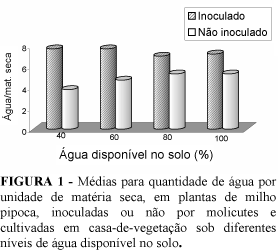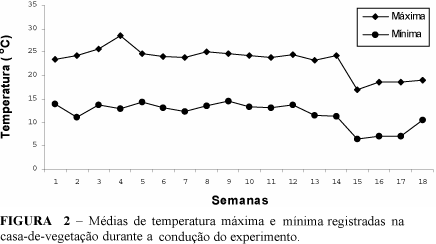Very few studies can be found concerning the mechanisms of pathogenicity and the effects of Mollicutes (spiroplasma and phytoplasma) on maize plants physiology. With this objective it was evaluated in greenhouse, physiological characteristics of plants submitted or not to inoculation with mollicutes and cultivated under different water levels in soil, corresponding to the reposition of 40, 60, 80 and 100% of the total water availability. Each experimental plot was set up with a pot contained two plants and repeated six times. In order to accomplish the inoculation, the pathogens vectors leaf hoppers Dalbulus maydis, were collected at the field and confined on the seedlings by seven days. The plants symptoms were evaluated, as well as the detection of phytoplasma by PCR and spiroplasma by Western blotting. Inoculation increased significantly the leaf water potential and the amount of water by unity of dry matter in the plants. This effect is probably due to the interference of pathogens on plant physiology, by producing growth substances, which caused increment on stomatal resistance, leaf transpiration reduction and consequently greater water retention in the tissues. This mechanism could avoid alterations on osmotical concentrations of cells which affects the development of those procaryotes without cell wall. The inoculation increased also the number of ears, which is generally caused by hormonal imbalance and reduced the leaf area, plant height, plant dry weight and final grain weight.
Water potential; Zea mays L.; internode shortage




